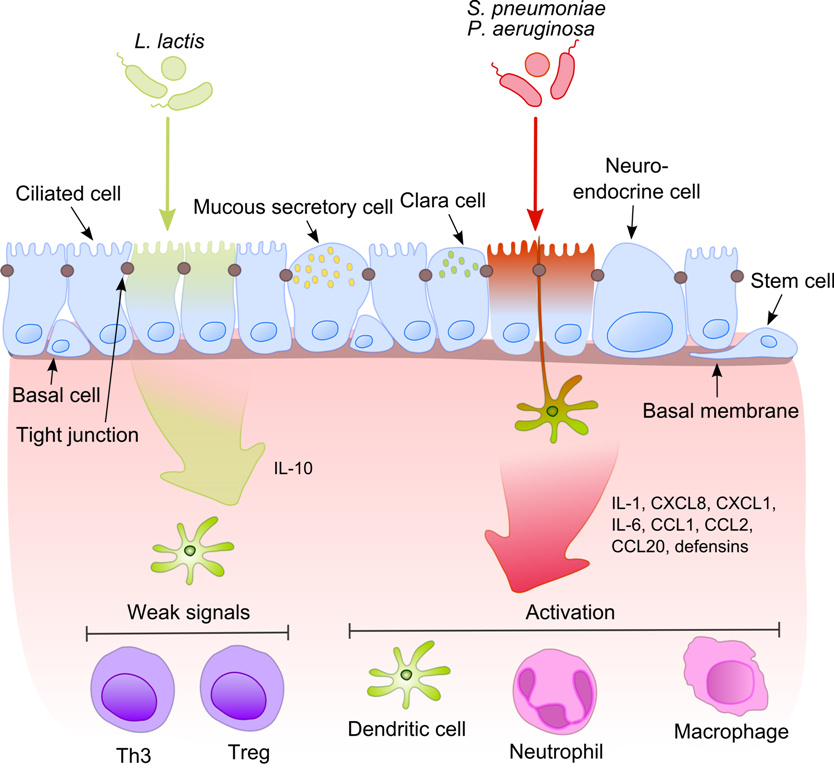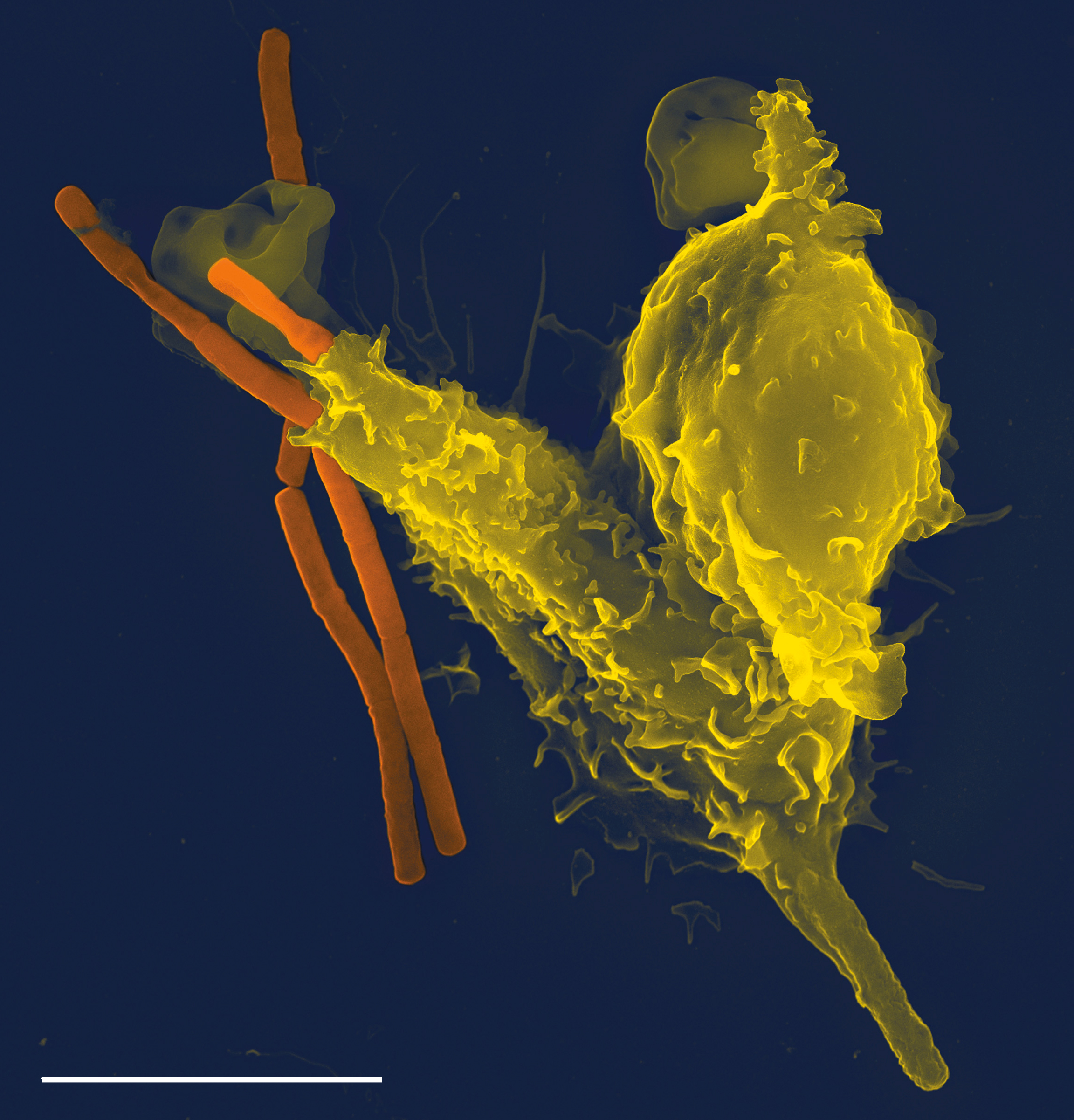|
Ernst Friedberger
Ernst Friedberger (17 May 1875 - 25 January 1932) was a German immunologist and hygienist born in Giessen. He was of Jewish ancestry. In 1899 he received his medical doctorate at the University of Giessen, and in 1901 became an assistant at the University of Königsberg, where in 1903 he was habilitated as a lecturer in hygiene. In 1908 he attained the directorship of experimental therapy at the Institute of Pharmacology at the University of Berlin. From 1915 to 1926 he was professor of hygiene at the University of Greifswald, and afterwards director of the ''Preußischen Forschungsinstituts für Hygiene und Immunitätslehre'' (Research Institute of Hygiene and Immunology) in Berlin-Dahlem. Friedberger is remembered for his investigations of anaphylaxis. He demonstrated that the specific arrangement between antigen, antibody, and complement is accompanied by the manufacture of anaphylatoxin, a word he used for the poison that was supposed to be the same with the one produced in ... [...More Info...] [...Related Items...] OR: [Wikipedia] [Google] [Baidu] |
Ernst Friedberger (1875-1932)
Ernst Friedberger (17 May 1875 – 25 January 1932) was a German immunologist and hygienist born in Giessen. He was of Jewish ancestry. In 1899 he received his medical doctorate at the University of Giessen, and in 1901 became an assistant at the University of Königsberg, where in 1903 he was habilitated as a lecturer in hygiene. In 1908 he attained the directorship of experimental therapy at the Institute of Pharmacology at the University of Berlin. From 1915 to 1926 he was professor of hygiene at the University of Greifswald, and afterwards director of the ''Preußischen Forschungsinstituts für Hygiene und Immunitätslehre'' (Research Institute of Hygiene and Immunology) in Berlin-Dahlem. Friedberger is remembered for his investigations of anaphylaxis. He demonstrated that the specific arrangement between antigen, antibody, and complement is accompanied by the manufacture of anaphylatoxin, a word he used for the poison that was supposed to be the same with the one produced ... [...More Info...] [...Related Items...] OR: [Wikipedia] [Google] [Baidu] |
Anaphylatoxin
Anaphylatoxins, or complement peptides, are fragments ( C3a, C4a and C5a) that are produced as part of the activation of the complement system. Complement components C3, C4 and C5 are large glycoproteins that have important functions in the immune response and host defense. They have a wide variety of biological activities and are proteolytically activated by cleavage at a specific site, forming a- and b-fragments. A-fragments form distinct structural domains of approximately 76 amino acids, coded for by a single exon within the complement protein gene. The C3a, C4a and C5a components are referred to as anaphylatoxins: they cause smooth muscle contraction, vasodilation, histamine release from mast cells, and enhanced vascular permeability. They also mediate chemotaxis, inflammation, and generation of cytotoxic oxygen radicals. The proteins are highly hydrophilic, with a mainly alpha-helical structure held together by 3 disulfide bridges. Function Anaphylatoxins are able to tr ... [...More Info...] [...Related Items...] OR: [Wikipedia] [Google] [Baidu] |
1932 Deaths
Year 193 ( CXCIII) was a common year starting on Monday (link will display the full calendar) of the Julian calendar. At the time, it was known as the Year of the Consulship of Sosius and Ericius (or, less frequently, year 946 ''Ab urbe condita''). The denomination 193 for this year has been used since the early medieval period, when the Anno Domini calendar era became the prevalent method in Europe for naming years. Events By place Roman Empire * January 1 – Year of the Five Emperors: The Roman Senate chooses Publius Helvius Pertinax, against his will, to succeed the late Commodus as Emperor. Pertinax is forced to reorganize the handling of finances, which were wrecked under Commodus, to reestablish discipline in the Roman army, and to suspend the food programs established by Trajan, provoking the ire of the Praetorian Guard. * March 28 – Pertinax is assassinated by members of the Praetorian Guard, who storm the imperial palace. The Empire is auctioned off ... [...More Info...] [...Related Items...] OR: [Wikipedia] [Google] [Baidu] |
1875 Births
Events January–March * January 1 – The Midland Railway of England abolishes the Second Class passenger category, leaving First Class and Third Class. Other British railway companies follow Midland's lead during the rest of the year (Third Class is renamed Second Class in 1956). * January 5 – The Palais Garnier, one of the most famous opera houses in the world, is inaugurated in Paris. * January 12 – Guangxu Emperor, Guangxu becomes the 11th Qing Dynasty Emperor of China at the age of 3, in succession to his cousin. * January 14 – The newly proclaimed King Alfonso XII of Spain (Queen Isabella II's son) arrives in Spain to restore the monarchy during the Third Carlist War. * February 3 – Third Carlist War – Battle of Lácar: Carlist commander Torcuato Mendiri, Torcuato Mendíri secures a brilliant victory, when he surprises and routs a Government force under General Enrique Bargés at Lácar, east of Estella, nearly capturing newly cr ... [...More Info...] [...Related Items...] OR: [Wikipedia] [Google] [Baidu] |
German Immunologists
German(s) may refer to: * Germany (of or related to) ** Germania (historical use) * Germans, citizens of Germany, people of German ancestry, or native speakers of the German language ** For citizens of Germany, see also German nationality law **Germanic peoples (Roman times) * German language **any of the Germanic languages * German cuisine, traditional foods of Germany People * German (given name) * German (surname) * Germán, a Spanish name Places * German (parish), Isle of Man * German, Albania, or Gërmej * German, Bulgaria * German, Iran * German, North Macedonia * German, New York, U.S. * Agios Germanos, Greece Other uses * German (mythology), a South Slavic mythological being * Germans (band), a Canadian rock band * "German" (song), a 2019 song by No Money Enterprise * ''The German'', a 2008 short film * "The Germans", an episode of ''Fawlty Towers'' * ''The German'', a nickname for Congolese rebel André Kisase Ngandu See also * Germanic (disambiguation ... [...More Info...] [...Related Items...] OR: [Wikipedia] [Google] [Baidu] |
19th-century German Jews
The 19th (nineteenth) century began on 1 January 1801 ( MDCCCI), and ended on 31 December 1900 ( MCM). The 19th century was the ninth century of the 2nd millennium. The 19th century was characterized by vast social upheaval. Slavery was abolished in much of Europe and the Americas. The First Industrial Revolution, though it began in the late 18th century, expanding beyond its British homeland for the first time during this century, particularly remaking the economies and societies of the Low Countries, the Rhineland, Northern Italy, and the Northeastern United States. A few decades later, the Second Industrial Revolution led to ever more massive urbanization and much higher levels of productivity, profit, and prosperity, a pattern that continued into the 20th century. The Islamic gunpowder empires fell into decline and European imperialism brought much of South Asia, Southeast Asia, and almost all of Africa under colonial rule. It was also marked by the collapse of the large ... [...More Info...] [...Related Items...] OR: [Wikipedia] [Google] [Baidu] |
German Wikipedia
The German Wikipedia (german: Deutschsprachige Wikipedia) is the German-language edition of Wikipedia, a free and publicly editable online encyclopedia. Founded on March 16, 2001, it is the second-oldest Wikipedia (after the English Wikipedia), and with articles, at present () the -largest edition of Wikipedia by number of articles, behind English Wikipedia and the mostly bot-generated Cebuano Wikipedia.] Alternative language Wikipedias, 16 March 2001List of Wikipedias/Table meta.wikimedia.org, Statistics It has the second-largest number of edits behind the English Wikipedia and over 260,000 disambiguation pages. On November 7, 2011, it became the second edition of Wikipedia, after the English edition, to exceed 100 million page edits. The German Wikipedia is criticized because of several ongoing p ... [...More Info...] [...Related Items...] OR: [Wikipedia] [Google] [Baidu] |
Diphtheria
Diphtheria is an infection caused by the bacterium '' Corynebacterium diphtheriae''. Most infections are asymptomatic or have a mild clinical course, but in some outbreaks more than 10% of those diagnosed with the disease may die. Signs and symptoms may vary from mild to severe and usually start two to five days after exposure. Symptoms often come on fairly gradually, beginning with a sore throat and fever. In severe cases, a grey or white patch develops in the throat. This can block the airway and create a barking cough as in croup. The neck may swell in part due to enlarged lymph nodes. A form of diphtheria which involves the skin, eyes or genitals also exists. Complications may include myocarditis, inflammation of nerves, kidney problems, and bleeding problems due to low levels of platelets. Myocarditis may result in an abnormal heart rate and inflammation of the nerves may result in paralysis. Diphtheria is usually spread between people by direct contact or through th ... [...More Info...] [...Related Items...] OR: [Wikipedia] [Google] [Baidu] |
Epidemiological
Epidemiology is the study and analysis of the distribution (who, when, and where), patterns and determinants of health and disease conditions in a defined population. It is a cornerstone of public health, and shapes policy decisions and evidence-based practice by identifying risk factors for disease and targets for preventive healthcare. Epidemiologists help with study design, collection, and statistical analysis of data, amend interpretation and dissemination of results (including peer review and occasional systematic review). Epidemiology has helped develop methodology used in clinical research, public health studies, and, to a lesser extent, basic research in the biological sciences. Major areas of epidemiological study include disease causation, transmission, outbreak investigation, disease surveillance, environmental epidemiology, forensic epidemiology, occupational epidemiology, screening, biomonitoring, and comparisons of treatment effects such as in clinical trials. E ... [...More Info...] [...Related Items...] OR: [Wikipedia] [Google] [Baidu] |
Bacterial Pathogen
Pathogenic bacteria are bacteria that can cause disease. This article focuses on the bacteria that are pathogenic to humans. Most species of bacteria are harmless and are often beneficial but others can cause infectious diseases. The number of these pathogenic species in humans is estimated to be fewer than a hundred. By contrast, several thousand species are part of the gut flora present in the digestive tract. The body is continually exposed to many species of bacteria, including beneficial commensals, which grow on the skin and mucous membranes, and saprophytes, which grow mainly in the soil and in decaying matter. The blood and tissue fluids contain nutrients sufficient to sustain the growth of many bacteria. The body has defence mechanisms that enable it to resist microbial invasion of its tissues and give it a natural immunity or innate resistance against many microorganisms. Pathogenic bacteria are specially adapted and endowed with mechanisms for overcoming the ... [...More Info...] [...Related Items...] OR: [Wikipedia] [Google] [Baidu] |
Immune System
The immune system is a network of biological processes that protects an organism from diseases. It detects and responds to a wide variety of pathogens, from viruses to parasitic worms, as well as cancer cells and objects such as wood splinters, distinguishing them from the organism's own healthy tissue. Many species have two major subsystems of the immune system. The innate immune system provides a preconfigured response to broad groups of situations and stimuli. The adaptive immune system provides a tailored response to each stimulus by learning to recognize molecules it has previously encountered. Both use molecules and cells to perform their functions. Nearly all organisms have some kind of immune system. Bacteria have a rudimentary immune system in the form of enzymes that protect against virus infections. Other basic immune mechanisms evolved in ancient plants and animals and remain in their modern descendants. These mechanisms include phagocytosis, antimicrobial pe ... [...More Info...] [...Related Items...] OR: [Wikipedia] [Google] [Baidu] |






